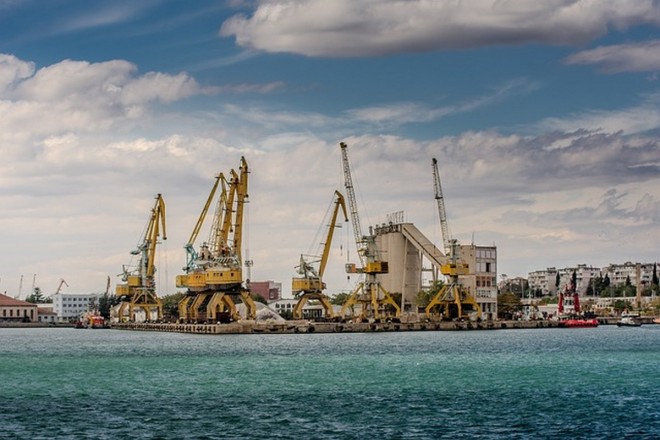Some Underrated Threats to Bulgaria’s Economy
- четвъртък, юни 20, 2024, 9:31
- България
- Добавете коментар
Bulgaria’s economy has steadily strengthened since the country became a member of the European Union (EU) in 2007. But even with this increased strength and stability, it is still the poorest country within the EU. While many elements have been implemented to help foster a strong economy that brings it up to the EU average, including contributed funds from the EU and stricter policies for corruption and misuse of government funds, several underrated threats have the potential to undermine its achieved growth and projected growth.
These threats, explored below, have a broad range. Some of them directly impact Bulgarians, and others indirectly affect them, but they all have the shared possibility of weakening the country’s economy.
Declining Population
While population levels can both positively and negatively impact an economy, Bulgaria’s declining population could further stress it. The country currently has a low birth rate and a high emigration rate. These rates can negatively affect individual earning potential and the country’s overall GDP, which is a critical factor in assessing the overall strength of any economy.
Low Average Income
The average annual salary across all EU member states is €26,136. Bulgaria’s average salary is €12,923, making it the lowest-earning state. Although the salary is projected to increase, aligning with the EU average will take quite some time, and the low average income until then will be a weakness when evaluating the overall economy.
Government Corruption
Although measures have been taken to reduce corruption in Bulgaria’s government system, it is still a present factor. The UK government website states, “real reform had not taken place and political will was lacking.” Bulgaria is considered the most corrupt member of the EU based on its ranking in the Corruption Perceptions Index by Transparency International.
The issues are believed to be at the highest levels of government and to be connected to the misuse of financial resources as well as fraudulent activities like embezzlement — harming the strength of the economy and other aspects of the country’s infrastructure that indirectly impact the economy (such as the quality of healthcare, education, and social support systems).
Organised Crime
Concerns ranging from human trafficking, modern slavery, and drug distribution to increased rates of cybercrime are ongoing issues impacting Bulgaria’s economy. A contributing factor to this is where the country is located — between Europe, Asia, and the Middle East — rendering it an easy transit point for trafficking and the movement of illegal goods.
The cybercrime impacting the country is primarily related to finances, including the authorisation of suspicious funds (believed to be connected to other criminal activity) as well as investment and phone scams.
External Financial Crises
Bulgaria has been no exception to external financial influences; it, like the rest of the world, has felt the lasting effects of the global financial crisis that occurred between 2007 and 2009, with its impacts rippling into the present. It was also affected by the EU Financial Crisis of 2009 and the pandemic. These outside influences have dramatically impacted the cost of food, property, rentals, and oil, inflation rates, and more.
Being part of the EU and in closer proximity to the unrest of Russia’s Ukrainian invasion has also impacted the economy and affected it more directly than it has for countries outside the European continent. For instance, the cost of oil surged in Europe just following the invasion, rising more than 25%. The war has also impacted the availability of food and goods within the global supply chain, contributing to already strained access to resources.
Benefits to Bulgaria’s Economy
Though these threats to Bulgaria’s economy are important to keep in mind, there have been major positive developments in its economy in recent decades.
A prominent development is EU funding to support various social initiatives in Bulgaria, such as transitioning to a greener economy and infrastructure, improving education and skill development, and developing a more robust healthcare system. However, the implementation of these projects is moving more slowly than anticipated.
Bulgaria also boasts a stable job market with a low unemployment rate of 5% (below the EU’s average unemployment of 6%). The country’s main industries include energy production, mining, information technology, and machine building.
The average disposable income is also projected to increase, which will boost the economy with increased spending on goods ranging from food and transportation to entertainment like dining out and even playing Hacksaw slots from Casinos.com. General spending has already increased as the country recovers from the pandemic crisis, and a rise in disposable income will keep this on an upward trajectory.
In addition to these positive developments, Bulgaria’s debt currently sits at 23.1% of its GDP, or roughly €21 billion. This amount is lower than it was in 2019, showing that while debt has accrued, it is generally improving. When countries have debt (as is typical and even expected), it impacts the overall supply and demand cycle, inflation rates, tax rates, and more. These significantly affect the cash flow of a country, and for Bulgaria, its reduced debt percentage can be linked to its lower inflation rate.
These positive factors, alongside a diligent effort to address the existing threats, will help shape an economy that better compares to those of other EU states and countries around the world.
Conclusion
Since Bulgaria has become an EU member, various efforts have been made to strengthen the country and its economy. While the health of the economy has been steadily improving, there are factors, including its declining population, government corruption, organised crime, and external influences, that have the potential to seriously derail the efforts made.
By being aware of these issues and all the positive elements at work already, Bulgaria can begin to close the gaps between itself and other EU members so that it, too, can prosper and thrive.











